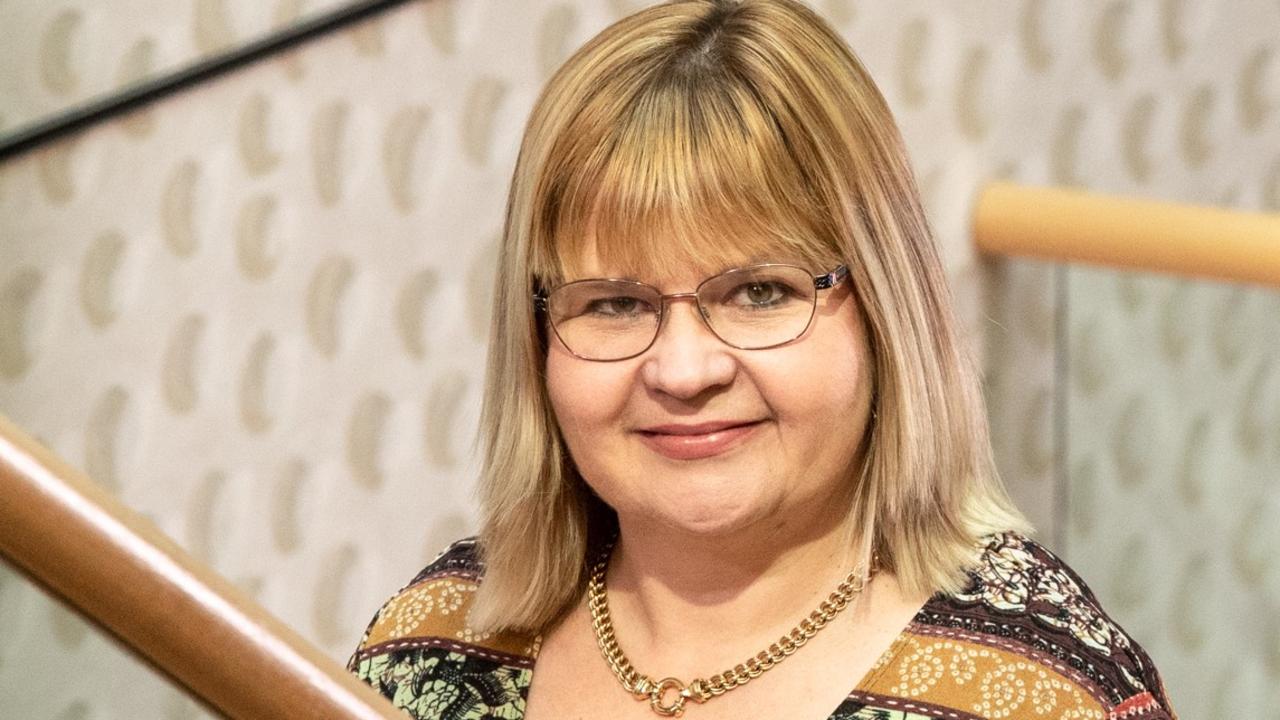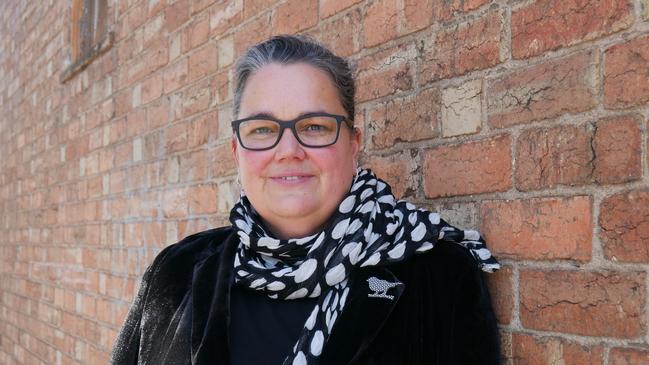Isolated and alone, parents struggle with bringing a baby into a pandemic
More new mums are experiencing postnatal depression, with Covid restrictions failing to protect the mental health and wellbeing of recent parents. A Geelong mum tells her story.
Geelong
Don't miss out on the headlines from Geelong. Followed categories will be added to My News.
For Leopold’s Melissa Ruiter, postnatal depression brought an overwhelming and indescribable sadness.
She said speaking up about how she was feeling seemed like a sign of failure 21 years ago but today, more than ever, she wants parents to know that they are not alone.
After the birth of her first child, Melissa was told she would likely suffer from postnatal depression.
However it was not until her second-born that she noticed something was wrong.
“I couldn’t settle him and that made me edgy, I wasn’t confident that I had control,” she said.
“I just couldn’t stop him from crying.”
Melissa said she began isolating herself over a fear that others would see her struggling and think of her as a bad mother.
“I used to cry a lot. It made me sad that I wasn’t a good mum like everyone else,” she said.
Melissa said she could not imagine going through postnatal depression during the current pandemic, without the benefits of accessible support and social engagement opportunities.
Yet it has become a reality for so many parents over the last 19 months.
A confidential state government report shows there was a 50 per cent increase in peri-natal mental health referrals in April, with little to no increase in resources provided.
During stages of the pandemic lactate consultants were not considered essential workers and home visits from maternal health nurses and child protection services were not able to operate, unless under extreme circumstances.
Australia’s response to the Covid-19 pandemic meant radical changes were made to the way maternity services were delivered.
Deakin University’s Midwifery Professor Linda Sweet conducted two major studies into the antenatal and post-natal experiences during the pandemic, which involved two nationwide surveys with 4500 respondents.

“We wanted to gather evidence quickly because we anticipated that women would struggle just as soon as we realised the amount of restrictions on the provision of care,” she said.
Through her research, Prof. Sweet said women and their partners found their experiences isolating and, in some instances, struggled to connect to the pregnancy.
“Most women were not allowed to have a support person during antenatal care, even if they were being delivered bad news, they had to do it alone and that is not a good way to start a pregnancy,” she said.
During different stages of lockdown, if a baby was admitted to a special care nursery there could only be one nominated visitor, typically the biological mother, meaning non-gestational parents went extended periods without seeing their baby.
“They didn’t get the care they needed postnatally,” she said.
“They often didn’t get follow up services, just telephone calls and some babies were not being weighed or checked.”
Respondents to the survey which included medical staff and parents were asked to summarise their antenatal and birthing experiences with the most common words including anxious, isolating, lonely and uncertain.
“These women need the capacity to have a support person anytime, but especially if given bad news, we need to recognise a need to have support in labour, and women need to have choice and control over what their maternity services look like,” she said.
Dr Julie Borninkhof chief executive officer of PANDA, (Perinatal Anxiety and Depression Australia), said historically 1-in-5 mums and 1-in-10 dads experience anxiety and depression, but under the current climate these numbers have surged and that now 4-in-5 mums were believed to have experienced mental vulnerability as a direct result of the last 19 months.
“There is an added societal pressure that pregnancy is golden, and we use idealised statements of what that period is like and people who don’t feel that way often think they are a failure,” she said.
“We know from callers there is an intense feeling they should be a better mother even though we teach them being a good mum is owning your vulnerability and knowing some days will be hard.”
As part of its services, PANDA delivers a national helpline manned with volunteers and employees with lived experiences as well as psychiatrists and social workers.
Dr Borninkhof said since the pandemic began, the number of recent and expecting parents requiring support has doubled.
“Much of the stresses have been caused by changes to the hospital system, financial pressures, homeschooling other children, and not being able to engage in self care as a result of the lockdowns,” she said.
“There has been a massive surge in the number of people reaching out and while we have received an increase in funding we are still struggling to keep up with the demand.”

Dr Ben Goodfellow a childhood and infant psychiatrist working with Barwon Health said the increase in referrals began early in the pandemic and had been sustained.
“In ordinary times some form of family service agency would be going into the home and seeing that a mother, father or young child needs specialist mental health intervention but because these services have not been able to operate there is an enormous hidden demand,” he said.
Specialising in the formative years, Dr Goodfellow said a baby’s individual experience during the pandemic was just as important as they became marked by their parents’ stress and distress.
“It is fairly logical to imagine the emotional state of parents affects the baby who is dependent on them,” he said.
“It is not harmful in an irreversible sense but in the shorter term it does mark that child’s experiences in the world and has bearings on how things play out when there isn’t the right kind of intervention.”
Perinatal mental health services consider an infant’s mental wellbeing in the context of family struggles.
“The younger you are the more you experience your emotional world through the body and physical symptoms,” he said.

“In babies it is sleeping, feeding and settling problems as well as growth delay and developmental problems.
“In infant mental health we recognise that a baby is a person in their own right who has rich emotional expressions and experiences of the world even if they don’t have the words for it.”
Dr Goodfellow said it was unsurprising that in a world dominated by Covid-19, mental health had been overshadowed in the health system.
“The benefits of the right intervention early are enormous,” he said.
“In my experience the signs of a mental health problem always begin long before the right help is sought and it often leads to a vicious cycle of distress and despair which becomes harder for a person to dig themselves out of.
“It is helpful to recognise that while of course it is a struggle when a woman is pregnant and when a baby is born, it is not normal for those struggles to become debilitating.”
If you require support PANDA’s free National Perinatal Mental Health Helpline is available Monday to Friday between 9am and 7.30pm by calling 1300 726 306.
More Coverage
Originally published as Isolated and alone, parents struggle with bringing a baby into a pandemic





